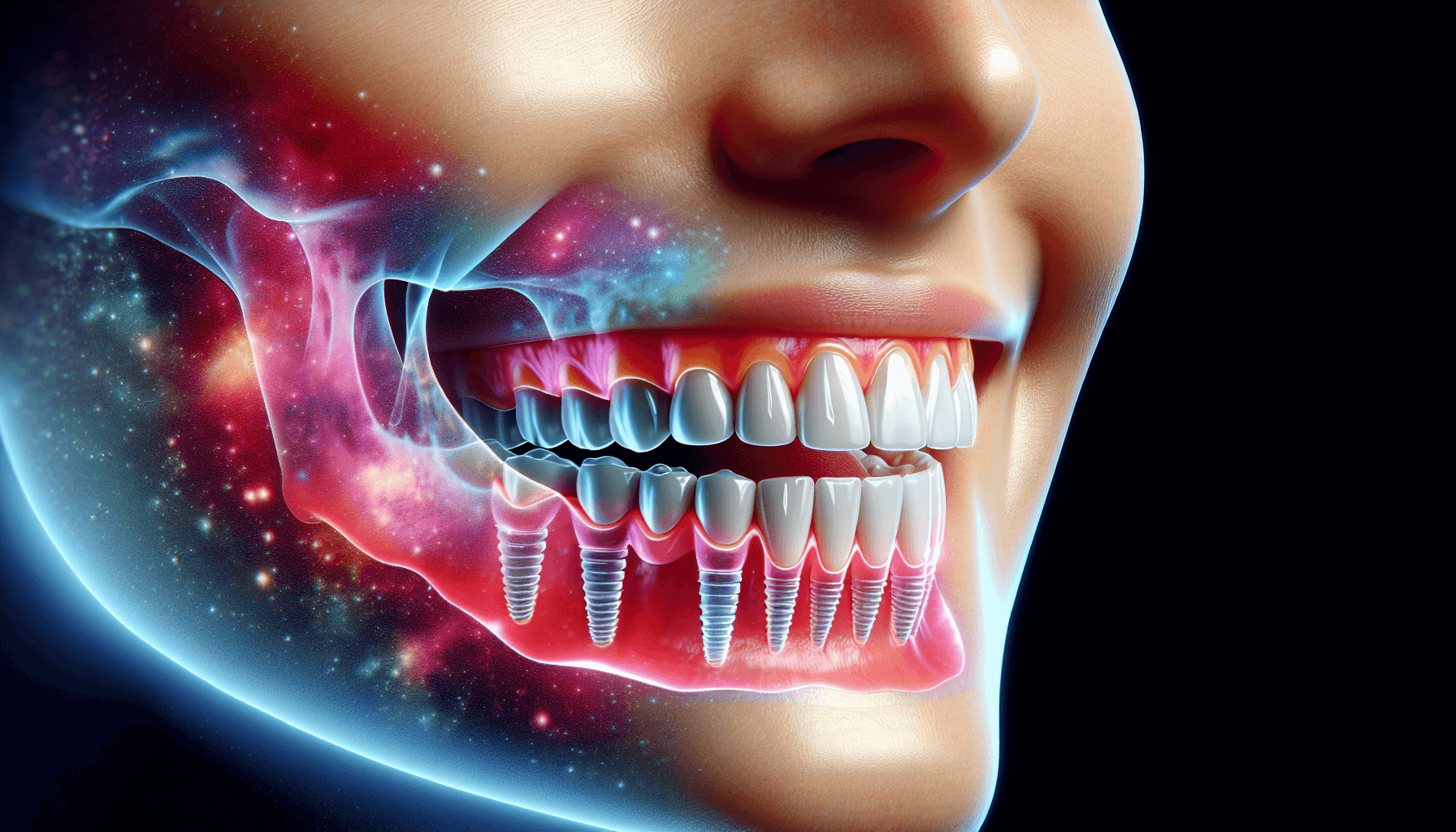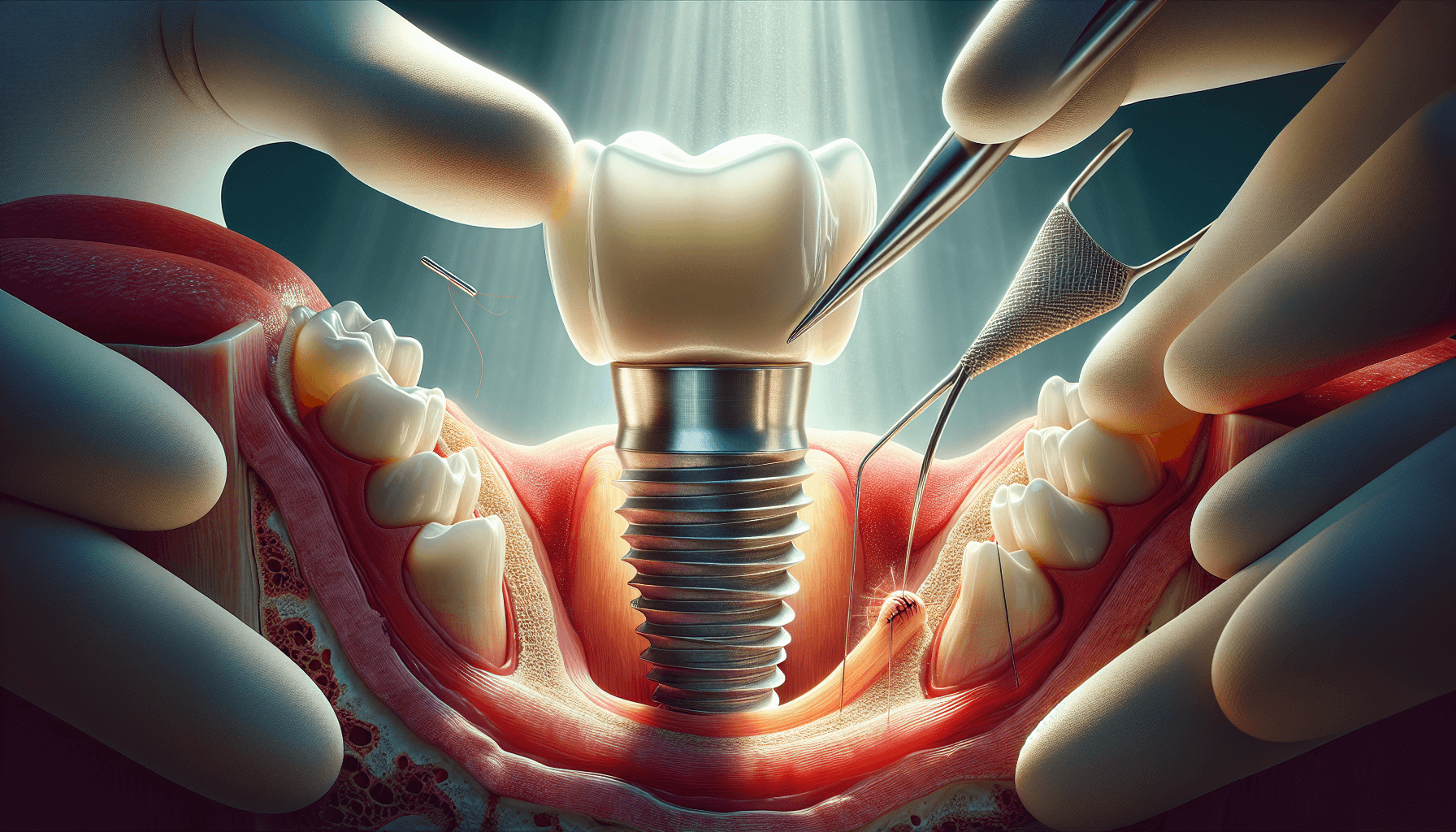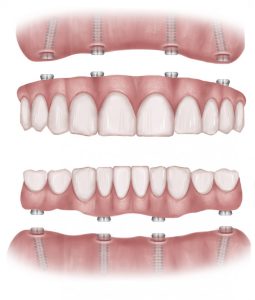Who should get full mouth dental implants? If you’re missing most of your teeth, have a healthy jawbone, and value having permanent teeth that are cosmetic and functional, this article is for you. We provide clear insights on who is a candidate for full mouth dental implants without the fluff, focusing on who benefits most from this procedure and why.
Important Details about Who is a Candidate for Full Mouth Dental Implants
-
Full mouth dental implants are a comprehensive solution for replacing all teeth in one or both jaws, offering better stability and preventing jawbone degradation compared to traditional dentures.
-
Ideal candidates for full mouth dental implants include those with missing teeth, sufficient jawbone density, healthy oral tissues, regardless of age, provided they are in good general health.
- People who have extensive dental problems, and poor smile esthetics where the costs of repair are high, should consider implants as an alternative to fixing natural teeth
- People with severe periodontal/gum disease should consider full mouth dental implants as an alternative to unpredictable gum surgeries.
-
The cost of full mouth dental implants varies widely, with factors such as the type of implant, materials used, and location of the practice affecting the price; insurance and financing options may help manage the expense.
Maryland Dental Implant and Sedation Dentistry Center
At Maryland Sedation Dentist we have a full dental implant and sedation dentistry center. We offer all implant and sedation options from start to finish. Contact us for a no cost dental implant consultation.

Meet Dr. Adams
Understanding Full Mouth Dental Implants
Dental implants for the full mouth are designed to:
-
Replace all the teeth in the upper or lower jaw, or both
-
Typically use only four implants for each arch but sometimes up to 6 implants are used
-
Provide a comprehensive solution for restoring dental function and aesthetics
-
Crafted from titanium or ceramic posts, these implants serve as secure anchors for replacement teeth
-
Provide stability during eating and speaking, closely mimicking the function of natural teeth
In comparison to traditional dentures, full-mouth dental implants offer superior comfort, prevent jawbone degradation, and maintain the health of natural teeth. With proper care, a mouth implant, such as a full mouth implant, can last for many years, providing not just a stable set of teeth but a transformative boost in confidence and quality of life.
Types of Full Mouth Dental Implants
Full mouth dental implants can be customized to meet individual needs, with options to replace all teeth or just a single arch. Single arch dentures are an excellent solution when only one arch needs replacement. Options for either the upper maxillary arch or the lower mandibular arch are available.
Interestingly, the maxillary arch is commonly chosen for single arch dentures due to the better support and stability offered by the bone structure. In contrast, the mandibular arch is influenced by tongue movement, which may affect stability.
Components of Full Mouth Dental Implants
At the heart of full mouth dental implants are titanium implants. These posts are selected for their compatibility with the body and their strength in supporting artificial teeth, making them ideal for mouth implants.
The full arch dentures, which replace a complete set of upper or lower teeth, are usually made from acrylic materials. This choice gives them a natural appearance, ensuring that your new smile blends seamlessly with your natural facial aesthetics.
Ideal Candidates for Full Mouth Dental Implants

Who can benefit from full mouth dental implants? Ideal candidates are individuals who:
-
Have several missing teeth or many teeth in need of expensive dental work
-
Have a fully grown jawbone
-
Have sufficient bone density
-
Have healthy oral tissues
- Have Severe periodontal disease
Despite common misconceptions, age should not be a deciding factor. What matters more is the health of your mouth and your overall well-being.
Age and General Health
The notion that dental implants are only for the young is far from reality. Age itself is not a significant obstacle for dental implants. However, candidates for dental implants must maintain good overall health to handle the surgery effectively.
Patients in good general health without medical conditions affecting bone healing are typically well-suited for dental implant surgery. Their overall health significantly influences the healing process and the successful integration of the dental implant with the jawbone..
Oral Health Requirements
Oral health is a key determinant in the success of dental implant surgery. Candidates for dental implants require sufficient bone density in the jaw to support the implant, and in some cases, a bone graft may be necessary to address bone loss. But it’s not just about the bone.
Healthy gums are essential to minimize the risk of gum disease and other complications.
Addressing Periodontal Disease and Gum Health
Periodontal disease is a critical factor to address before proceeding with dental implant surgery. Healthy oral tissues are crucial for the success of the procedure. If a patient has existing periodontal disease, it must be managed before moving forward. Unless you are removing all your teeth. Periodontal issues usually resolve after removing all the teeth because all the infection and autoimmune conditions are related to the attachment system of the teeth to the bone. In fact, in the even of severe gum disease it can be better to remove all the teeth to prevent tooth supporting bone loss. And to place implants to preserve the bone and for implant supported teeth and prosthetics.
The Cost of Full Mouth Dental Implants
Full mouth dental implants are an investment in your oral health and quality of life. However, they do come with a cost. Depending on various factors, full mouth dental implants can cost between $7,000 and $90,000, with the average national pricing for a full arch ranging from $25,000 to $40,000.
To put this into perspective, individual dental implants can cost between $3,000 and $6,000 per tooth, while snap-on dentures cost between $8,000 and $19,000 per arch upfront, plus additional costs for replacements. The final cost can fluctuate based on the number of implants needed, the location of the dental practice, and national averages per dental arch.
Factors Affecting Cost
Several factors contribute to the final cost of dental implants. The specific type of dental implant solution chosen, such as Snap-in Dentures or Fixed All on 4, significantly impacts the overall cost. The materials selected for creating the attached bridge or denture also play a major role in determining the cost.
The total cost of dental implants can be influenced by several factors, including:
-
The number of teeth extractions required before the implants are placed
-
The type of implant material used
-
The complexity of the case
-
The location of the dental practice
Hence, it’s essential to have an open discussion with your dental provider about the cost of the procedure, including any additional fees, and explore available insurance and financing options.
Financing and Payment Options
Many patients are often concerned about the cost of full mouth dental implants. It can be a significant factor in their decision-making process. But, insurance can reduce the out-of-pocket expense for patients obtaining full mouth dental implants. The extent of the surgery and the type of insurance—whether it is medical or dental—are important factors affecting the insurance coverage for dental implants.
The Dental Implant Procedure
The journey to a life-changing smile with full mouth dental implants is a process. Typically, the dental implant procedure spans five to nine months from initial surgery to final restoration. Recovery time usually ranges from three to eight months.
A full mouth dental implant procedure requires a minimum of four implants per jaw to support an entire row of teeth.
Initial Consultation
Every journey starts with a single step, and in the case of full mouth dental implants, it begins with an initial consultation. During this session, your dentist will conduct a thorough examination to determine your suitability for dental implants. This includes an assessment of the condition of your teeth and gums and the use of X-rays or other imaging to evaluate jawbone density and plan the implant placement.
Moreover, reviewing your medical history and current medications is an essential part of the consultation. This helps to identify any factors that may impact the success of the dental implants.
Surgical Procedure

Dental implant surgery typically includes the following steps:
-
Administration of local anesthesia or sedation to ensure your comfort during the procedure.
-
Making an incision in your gums to expose the jawbone.
-
Placing the implant into the jawbone.
-
Suturing the wound to promote healing.
The surgery is generally completed in a single visit. After the surgery, a period of healing allows for the implant to integrate with the jawbone, a process known as osseointegration. Bear in mind that despite the meticulous planning and execution, dental implant surgery carries some risks, including nerve damage, post-surgery pain, and infection risk.
Recovery and Aftercare
Recovery and aftercare are crucial stages in the dental implant journey. The osseointegration process, which is essential for the success of dental implants, typically takes several months to complete.
During this period, it’s important to:
-
Consume soft, nutritious foods
-
Maintain hydration
-
Consider the use of Vitamin D supplements to support bone health
-
Use pain medications and cold compresses to manage discomfort and swelling following dental implant surgery
-
Maintain good oral hygiene to facilitate healing and ensure the longevity of your implants.
Choosing the Right Dental Implant Provider
Choosing the right provider for your full mouth dental implants is a decision that can significantly impact your journey. It’s crucial to evaluate their credentials, considering:
-
their education
-
training
-
expertise
-
specific experience with dental implants.
Membership in professional organizations like the American Academy of Implant Dentistry (AAID) or the International Congress of Oral Implantologists (ICOI) can be a marker of a dental implant provider’s commitment to rigorous training and ethical practice. Also, consider the accessibility of the provider, as the number of visits required throughout the procedure may influence your convenience.
Dentist’s Experience and Credentials
The credentials and experience of your dentist play a vital role in the success of your dental implants. Dentists who achieve board certification from the American Board of Oral and Maxillofacial Surgery have undergone substantial training in dental implant surgery, demonstrating their expertise.
Recognition by reputable professional institutions such as the American Academy of Implant Dentistry (AAID) is indicative of a dentist being a qualified and reliable dental implant professional. What’s more, the use of established dental implant brands like:
-
Nobel Biocare
-
Straumann
-
Hiossen
-
Zimmer Biomet
-
BioHorizons
correlates with high success rates due to product quality.
Patient Testimonials and Reviews
Patient testimonials are important and they provide valuable information and validation. They are crucial resources for assessing a dental implant provider’s quality of care.
Look for reviews on multiple platforms to gain a comprehensive understanding of a dental implant provider’s patient care quality. Feedback from previous patients who underwent full mouth dental implant procedures can provide insights into their experiences and satisfaction.
Summary
In conclusion, full mouth dental implants offer a comprehensive and long-lasting solution for missing teeth. From understanding the procedure to selecting the right dental provider, a well-informed approach can ensure a successful outcome. The journey may be complex and require a significant investment, but the rewards – a radiant smile, improved oral health, and a boost in self-confidence – are truly priceless.
Frequently Asked Questions
Are dental implants suitable for older patients?
Yes, dental implants can be suitable for older patients as long as their overall health is good. It’s not predominantly about age, but about the patient’s general health.
How do full mouth dental implants feel?
Full mouth implants that are permanent all on 4 feel smooth and comfortable but different than natural teeth since they are one piece and not individual natural teeth. Implants do not feel temperature and pressure. Snap on dentures feel like plastic and they are a little on the thick side. Snap on takes a little getting used to but they are quite stable and do not dislodge while eating.
How long does the dental implant procedure take?
The dental implant procedure usually takes five to nine months from initial surgery to final restoration, with a recovery time of three to eight months.
How much does it cost to get permanent dental implants for the top teeth only?
The total cost to get top teeth permanent implants including removing natural teeth, sedation and installing new implant teeth is $25,000 – $30,000 start to finish.
What factors influence the cost of full mouth dental implants?
The cost of full mouth dental implants is influenced by factors such as the type of implant, materials used, and the number of teeth extractions needed. These factors can significantly impact the overall cost of the procedure.
Are there financing options available for dental implants?
Yes, patients can reduce out-of-pocket expenses for dental implants through insurance coverage. It’s recommended to discuss available insurance and financing options with your dental provider.
How do I choose the right dental implant provider?
When choosing a dental implant provider, consider their credentials, experience, membership in professional organizations, and patient testimonials and reviews to make an informed decision.


